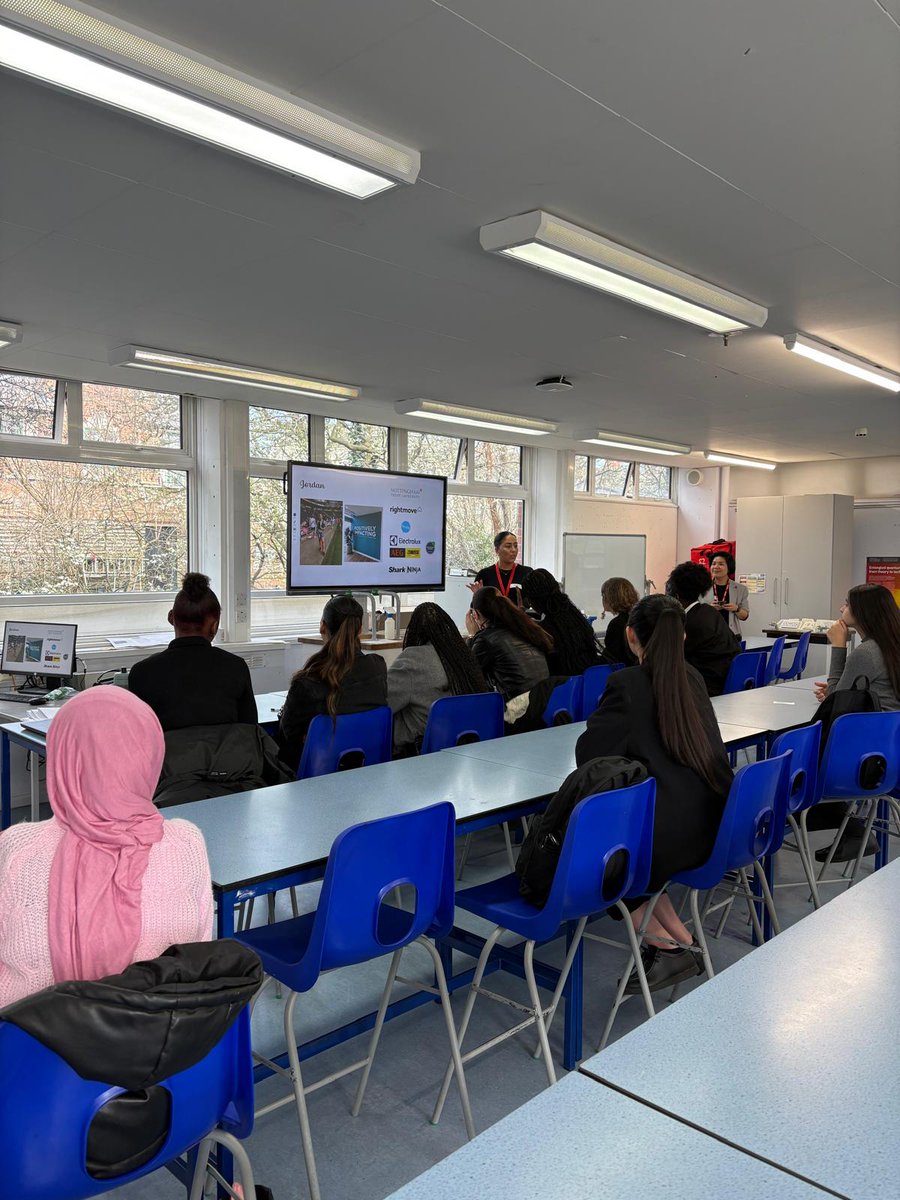Curriculum Overview
The curriculum of Harris Girls’ Academy East Dulwich is designed to challenge and inspire all learners whilst preparing them effectively for the future.
This is with a view to ending the cycle of poverty and disadvantage, enriching both the current and future lives of our pupils, and also their communities.
Our aim is to develop and deliver a broad, balanced and enriched curriculum that coherently builds on prior knowledge, ensures the development of high quality spoken and written communication and numerical fluency and ensures all pupils become successful learners who are equipped with powerful knowledge, and who are confident individuals and responsible citizens.
For further information about the curriculum please contact Tom Grocott on T.Grocott@harrisdulwichgirls.org.uk.
Curriculum design – Our key principles
Our curriculum:
- is broad and balanced, affording access to a wide range of subjects, robustly preparing pupils for the next stage in their education or training and to be active citizens both in Britain and globally; it powerfully addresses social disadvantage
- promotes high levels of academic achievement and sophisticated levels of subject domain specific knowledge
- equips pupils with the knowledge and cultural capital they need to succeed in life. This is ‘the essential knowledge that pupils need to be educated citizens, introducing them to the best that has been thought and said.
- helps secure excellent standards of behaviour for learning
- has an acute focus on the necessary priorities of ensuring that all our pupils make excellent progress in reading, writing and mathematics
- develops pupils’ spoken language, reading, writing and vocabulary as integral aspects of the teaching of every subject
- engenders an appreciation of human creativity and achievement links logically to the academy’s system of assessment in a way that supports teaching broader and more in-depth content across a subject area, as opposed to narrowed and shallow test content
- is evaluated on an annual basis to ensure that it reflects the needs of our changing cohorts and provides a meaningful and engaging experience for our learners in line with statutory guidance
- includes frequent opportunities for the effective personal development of pupils including extra-curricular, sporting and volunteering opportunities which develop courage, character and conscience as well as leadership competencies
- actively promotes the fundamental British values of democracy, the rule of law, individual liberty and mutual respect and tolerance of those with different faiths and beliefs
- offers all pupils access to a broad curriculum provision irrespective of race, disability, sex, religion or belief, sexual orientation, pregnancy and maternity, and gender reassignment (in-line with statutory guidance)
- is clearly defined in schemes of learning by each subject area available as medium and long term plans that are continually evaluated and updated to ensure rigour is maintained. The subject curricula are appropriately sequenced and designed to allow pupils to transfer knowledge to long term memory, towards clearly defined end points.
Nurturing and stimulating
 Whilst the curriculum will serve to progressively deepen each student's knowledge of a broad range of subjects, it is equally important that our curriculum enables students to value and develop their skills of enquiry and of evaluation; enables them to become critical thinkers, who are open minded and reflective in their learning and who are resilient enough to embrace new challenges.
Whilst the curriculum will serve to progressively deepen each student's knowledge of a broad range of subjects, it is equally important that our curriculum enables students to value and develop their skills of enquiry and of evaluation; enables them to become critical thinkers, who are open minded and reflective in their learning and who are resilient enough to embrace new challenges.
The curriculum ensures there are opportunities for pupils to develop their reading, oracy and literacy skills, to be creative, to act as leaders as well as active participants and to develop an understanding of key issues such as citizenship, and careers.
The well-being and personal development of our students is of paramount importance: time is therefore allocated to physical education and the Arts; to wellbeing; to the spiritual, moral, social and cultural development of all pupils; and time is given for pupils to play at break and lunchtime on the vast amount of open space the academy is fortunate to have, to socialise with each other, to go on trips and to have fun!
We want our students to feel that they are part of a community and so we encourage pupils to take part in every aspect of academy life, providing opportunities that are rich, varied, and reflective of a holistic school experience in which we promote and embed an ethos that promotes our shared British Values and shows respect for people of all faiths, different cultures and lifestyles.
Key Stage 3 (Years 7-9)
Genuine breadth and balance
We believe Key Stage 3 is the perfect opportunity for students to experience as many different subjects as possible, whilst maintaining a focus on the core subjects of English, Maths and Science. We operate a three-year KS3 programme of study which gives students lots of opportunity to challenge themselves. This Key Stage 3 curriculum covers the entire National Curriculum and beyond with the inclusion of Drama as a discreet subject and Textiles taught through the Design and Technology curriculum.
Religious Studies and Computing are taught discreetly across KS3. Citizenship is taught across the curriculum through a mapped approach from our PSHE provision in coaching time, assemblies and embedding it throughout every subject with our focus on developing active citizens, especially in Religious Studies where the Year 9 curriculum tackles some of the key issues around human rights and justice for example.
We try to expose students to as many different subjects as possible so that they are well-informed to choose their options. It provides the building blocks of learning for these subjects and, while it is inextricably linked to developing the knowledge, skills and understanding required for Key Stage 4, it is a stepping stone - part of a learning journey that students take with us. We believe it should be fun, challenging and, most of all, broad.
Please see further details of the KS3 curriculum on our year-by-year page.
Key Stage 4 (Years 10-11)
An academic curriculum based on the English Baccalaureate (EBacc)
At KS4 we ensure that our students follow a highly academic and challenging core curriculum which is blended with additional curriculum options that students can select to access a range of qualifications. For more information of the process of selecting option subjects, please see our Year 9 options page.
 The EBacc is made up of the subjects which are considered essential to many degrees and open up lots of doors. Research shows that a pupil’s socio-economic background impacts the subjects they choose at GCSE, and that this determines their opportunities beyond school. The EBacc qualification involves students studying English, Maths, Science, History or Geography and a language (Spanish or French as part of our Core curriculum). This is a very demanding set of curriculum subjects and has high level of expected knowledge development, retention and application. This curriculum intent will robustly challenge all students academically. For those students who do not study the full compilation of the EBacc subjects, they will all still study a very demanding compilation of core curriculum subjects which includes English, Maths, Science and either History or Geography. This again, will require a high level of knowledge development, retention and application when covering the curriculum intent. These qualifications will serve them well in life, whichever pathway they choose to take or door they decide to open.
The EBacc is made up of the subjects which are considered essential to many degrees and open up lots of doors. Research shows that a pupil’s socio-economic background impacts the subjects they choose at GCSE, and that this determines their opportunities beyond school. The EBacc qualification involves students studying English, Maths, Science, History or Geography and a language (Spanish or French as part of our Core curriculum). This is a very demanding set of curriculum subjects and has high level of expected knowledge development, retention and application. This curriculum intent will robustly challenge all students academically. For those students who do not study the full compilation of the EBacc subjects, they will all still study a very demanding compilation of core curriculum subjects which includes English, Maths, Science and either History or Geography. This again, will require a high level of knowledge development, retention and application when covering the curriculum intent. These qualifications will serve them well in life, whichever pathway they choose to take or door they decide to open.
A study by the UCL Institute of Education shows that studying subjects included in the EBacc provides students with greater opportunities in further education and increases the likelihood that a pupil will stay on in full-time education. Sutton Trust research reveals that studying the EBacc can help improve a young person’s performance in English and maths (source).
The government’s ambition is to see 75% of pupils studying the EBacc subject combination at GCSE by 2022, and 90% by 2025. We comfortably exceeded this target in 2022 with 87% of our pupils achieving the EBacc – leaving us only 3% off the 2025 target.
Please see further details of the KS4 core curriculum and option subjects available on our year-by-year page.
Key Stage 5 (Years 12-13)
At Key Stage 5 we are part of the highly successful Harris Federation Sixth Form with over 100 students studying at Harris Girls’ Academy East Dulwich and many more study subjects on a cross-site basis with our partner campus at Harris Boys’ Academy East Dulwich. Please see the area of our website dedicated to sixth form for further details.
Principles from cognitive science
What we want from our curriculum is students who gain rich, powerful and well-organised knowledge that they can use to think with and to understand the world and themselves. Cognitive science gives us the model of knowledge as schemas: webs of interconnected pieces of knowledge.
 When students join us in Year 7, they have limited schemas in our subjects: few pieces of knowledge, few connections, and possibly misconceptions. We want them to leave us with dense, well-linked and well-organised schemas. In other words, we want them to have learnt lots of high-quality knowledge in each subject. The below principles from cognitive science are features of our curriculum design and implementation to allow the development of such schemas:
When students join us in Year 7, they have limited schemas in our subjects: few pieces of knowledge, few connections, and possibly misconceptions. We want them to leave us with dense, well-linked and well-organised schemas. In other words, we want them to have learnt lots of high-quality knowledge in each subject. The below principles from cognitive science are features of our curriculum design and implementation to allow the development of such schemas:
- Spaced practice - distributing learning and retrieval opportunities over a longer period of time leads to better retention of knowledge.
- Interleaving - switching between different types of problem or different ideas within the same study session leads to better retention compared to block practice. A common misconception is that interleaving is a practice of splitting up topics and mixing them up: this is not what is meant by interleaving.
- Retrieval practice - recalling information from memory will promote long term learning.
- Cognitive load - attention and working memory are essential to learning but are ‘limited capacity’ resources which can be over-loaded. Cognitive load theory focuses teachers on the efficiency of their explanation and presentation of new knowledge by ‘chunking’ learning episodes.
- Dual coding - introducing concepts using both verbal (i.e. words) and non-verbal information (i.e. pictures) is thought to increase the chance of remembering that concept, compared to if the stimulus was only coded one way (i.e. words or images).
- Modelling - modelling is an instructional strategy in which the teacher demonstrates a new concept or approach to learning and students learn by observing.
- Concrete examples - using specific examples to understand abstract ideas.
- Metacognition - metacognitive strategies empower students to think about their own thinking. This awareness of the learning process enhances their control over their own learning. It also enhances personal capacity for self-regulation and managing one's own motivation for learning.
Preparing for life in modern Britain
The importance of a strong curriculum lies in its ability to broaden and strengthen the minds of young people. Knowledge is a key component when preparing young people for life in modern Britain. Through a carefully planned academic and coaching curriculum, we ensure the below to develop students with character, courage and conscience, who become academically and personally successful and lead in their community and beyond.
 Developing
Developing
- Responsible, respectful and active citizens who are able to play their part and become actively involved in public life as adults
- Pupils’ understanding of the fundamental British values of democracy, individual liberty, the rule of law and mutual respect and tolerance
- Pupils’ character, which Ofsted defines as a set of positive personal traits, dispositions and virtues that informs their motivation and guides their conduct so that they reflect wisely, learn eagerly, behave with integrity and cooperate consistently well with others
- Pupils’ confidence, resilience and knowledge so that they can keep themselves mentally healthy
- Pupils’ understanding of how to keep physically healthy, eat healthily and maintain an active lifestyle, including giving ample opportunities for pupils to be active during the school day and through extra-curricular activities
- Pupils’ age-appropriate understanding of healthy relationships through appropriate relationships and sex education
Promoting
- Equality of opportunity so that all pupils can thrive together, understanding that difference is a positive, not a negative, and that individual characteristics make people unique
- An inclusive environment that meets the needs of all pupils, irrespective of age, disability, gender reassignment, race, religion or belief, sex or sexual orientation
Enabling
- Pupils to recognise online and offline risks to their wellbeing – for example, risks from criminal and sexual exploitation, domestic abuse, female genital mutilation, forced marriage, substance misuse, gang activity, radicalisation and extremism – and making them aware of the support available to them
- Pupils to recognise the dangers of inappropriate use of mobile technology and social media
Supporting
- Readiness for the next phase of education, training or employment so that pupils are equipped to make the transition successfully
Careers
- An effective careers programme in line with the government’s statutory guidance on careers advice that offers pupils:
- Unbiased careers advice
- Experience of work, and
- Contact with employers to encourage pupils to aspire, make good choices and understand what they need to do to reach and succeed in the careers to which they aspire
For more information on our coaching programme and other information relating to the above, please refer to the personal development section of our website.
Curriculum and assessment update - November 2023
Click HERE to view Mr Grocott’ s curriculum and assessment update for Parents and Carers, from Thursday 16th November 2023.
























